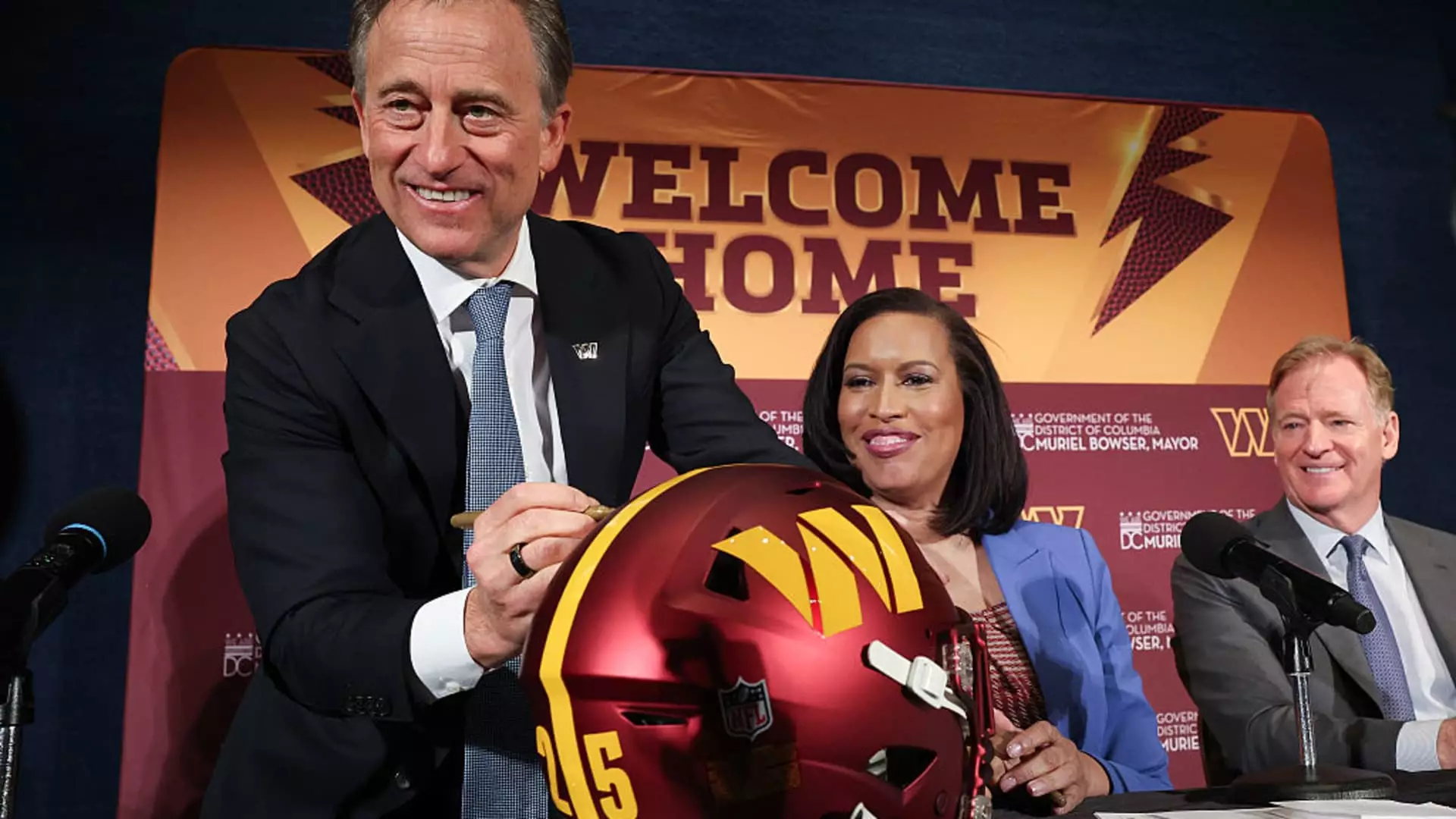In an era where capitalism is often scrutinized for its impact on society, one sector stubbornly remains insulated from the volatility that plagues many industries: professional sports. Billionaires like Josh Harris exemplify how private ownership of sports teams can guarantee long-term wealth preservation and even growth, above the fleeting valuations of public markets. Harris’s conglomerate, Harris Blitzer Sports & Entertainment (HBSE), has strategically amassed a vast portfolio, owning stakes in some of the globe’s most lucrative leagues. This is no accident; it underscores a deeper assertion — private ownership in sports offers advantages that capitalism’s short-term focus finds difficult to match.
Harris’s empire, valued at approximately $14.58 billion, is a testament to how private interests can leverage their influence to generate substantial capital. The strategic acquisitions, such as the Washington Commanders, Philadelphia 76ers, and others, exemplify a vision rooted in stability rather than volatility. By operating behind the scenes, these owners craft long-term strategies based on legacy, community influence, and sustainable financial growth, which is increasingly at odds with the public markets’ obsession with immediate returns.
The Myth of Public Market Superiority in Sports
Contrary to the assumptions that going public might unlock greater valuation or liquidity, Harris sharply questions this premise. He highlights that sports teams in the public arena tend to be valued below their intrinsic worth. Madison Square Garden’s public holdings in the Knicks and Rangers serve as a cautionary tale, with trade valuations often lagging behind private judgments of worth. This discrepancy reveals an enduring truth — public markets dislike the long-term horizon that sports teams embody.
The core issue lies in the nature of public markets themselves. Investors seek quick, tangible gains, which stands in stark contrast to the multi-year, often multi-decade growth cycles associated with sports franchises. Owners desire flexibility to make investments without being hamstrung by quarterly expectations. Harris emphasizes that public ownership constrains the ability to make bold moves aimed at long-term success, such as infrastructure upgrades, re-branding initiatives, or player development.
This tension underscores a fundamental principle: sports ownership is inherently a long-term game. Going public would subject these assets to short-term shareholder pressures that clash with the community-driven, legacy-building ethos of sports franchises. Therefore, the notion of public markets acting as a superior valuation mechanism is, at best, a misconception rooted in conventional financial thinking that doesn’t account for the unique characteristics of sports assets.
Private Equity’s Growing Role in Sports Investments
Harris’s integration of private equity strategies into sports ownership signals a shift in how these assets are managed and funded. Recent NFL policies permitting private equity firms to acquire minority stakes illustrate how even traditionally insular leagues are acknowledging the benefits of capital from outside financiers. These long-term, patient capital injections help owners like Harris accelerate growth without relinquishing control.
This model aligns with center-right economic principles: encouraging private enterprise, fostering long-term investments, and minimizing government interference. By allowing private equity to coexist with traditional ownership, leagues are balancing risk and reward more pragmatically. Harris’s approach reflects a belief that the marketplace for sports teams is best served by private capital that values stability and sustainability over quarterly earnings.
This strategic orientation advocates a pragmatic balance: leverage private investments to boost franchise valuation and infrastructure, while maintaining ownership independence. The long horizon and patient capital of private equity resonate with the reality that sports, unlike tech startups or transient industries, derive their value from history, community, and legacy — not just immediate earnings.
Why the Future Belongs to Private Owners
Harris’s stance on team ownership reflects a broader truth: in the competitive landscape of sports, private owners hold a decisive advantage. Their ability to operate with autonomy, pursue long-term visions, and avoid the stringent quarterly pressures of public markets grants them a strategic edge. The potential dilution of control, transparency requirements, and shareholder activism associated with public ownership jeopardize the foundational elements that make sports franchises successful.
The massive valuation growth Harris’s conglomerate has achieved indicates that private ownership remains the most effective model for preserving and enhancing the value of sports assets. As the industry matures, it will become increasingly clear that the best path forward for leagues and owners is to remain privately held entities. Public market appeals are superficial; beneath the surface, they threaten the strategic and financial stability that forms the backbone of successful franchises.
In essence, the enduring power of private ownership in sports lies in its flexibility, long-term focus, and ability to protect the intrinsic value of these assets from the whims of short-term market sentiment. Harris’s success and his aversion to IPOs serve as a blueprint for future owners who seek stability and sustained growth over fleeting public valuations.

